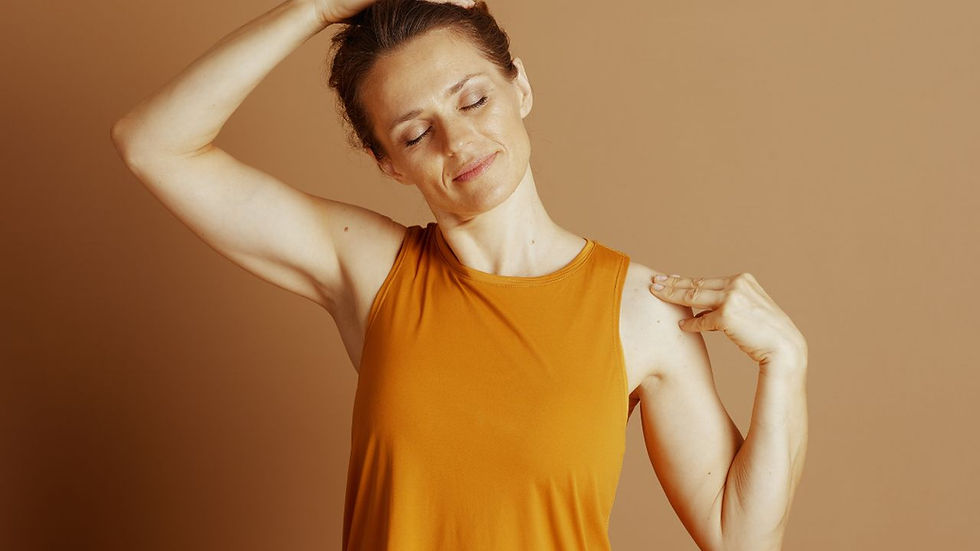A flexible low back helps with movement
- Ken Belveal
- May 2, 2024
- 2 min read

The quadratus lumborum (QL) is the deepest abdominal muscle. It plays an essential role in stabilizing the pelvis when a person is upright and is one of the primary sources of low back pain. Stretching it is essential for easing that pain.
Muscle anatomy

The quadratus lumborum is located deep in the low back. It originates on the top of the hip bone and attaches to the bottom of the twelfth rib and the sides of vertebrae L1-L4. The muscle extends the trunk backwards and to the sides, elevates the hip towards the rib cage, and increases the arch in the low back.
Symptoms of tightness
Pain or ache in the low back
Pain on the lower back during forced inhalation
Causes of tightness
Compensation for other weak core muscles
Repetitive movements such as twisting, bending or lifting improperly adds stress to the muscle
Poor posture causes the muscle to be engaged all the time
If you sleep on your side on a bed that is too soft, your quadratus lumborum can become tight and shortened on the side of your body that faces the ceiling
Differences in leg length also cause muscle compensation in the upper body which forces the quadratus lumborum to constantly work statically when standing or walking
Flexibility test
Stand with your heels, buttocks, shoulders, and head against a wall
Raise your right hand over your head and keep your left hand by your side
Inhale deeply
Exhale as you bend to the left allowing the left hand to slide down the outside of our left thigh (make sure to keep both buttocks, shoulders, and your head against the wall)
Your left fingertips should reach the outside of the left knee
Repeat test on the right side
Static release
Lie on your back with your feet elevated on a chair or sofa
Your knees and hips should be bent 90 degrees
Place a tennis ball or lacrosse ball on the low back (in between the top of the hip and the bottom of the ribs (approximately 2 inches to one side of your spine)
Find a sore spot that is a level 5-8 on a scale of 1-10 (10 being excruciating)
Stay on that spot for 30 seconds to 2 minutes or until there is just pressure and no pain
If the pain subsides below a level 5 before the 2 minutes are up, drop both knees toward the ball side and hold
Repeat on other side of the spine
Retest using the flexibility test.
Stand Up Str8 has products to improve posture and regain pain-free range of motion. The Hands-Free Middle Back Strengthener improves muscle tone between the shoulder blades helping to keep the shoulders back, improving posture, and alleviating pain not only in the middle back and neck but in the low back as well. Get yours here.








Comments